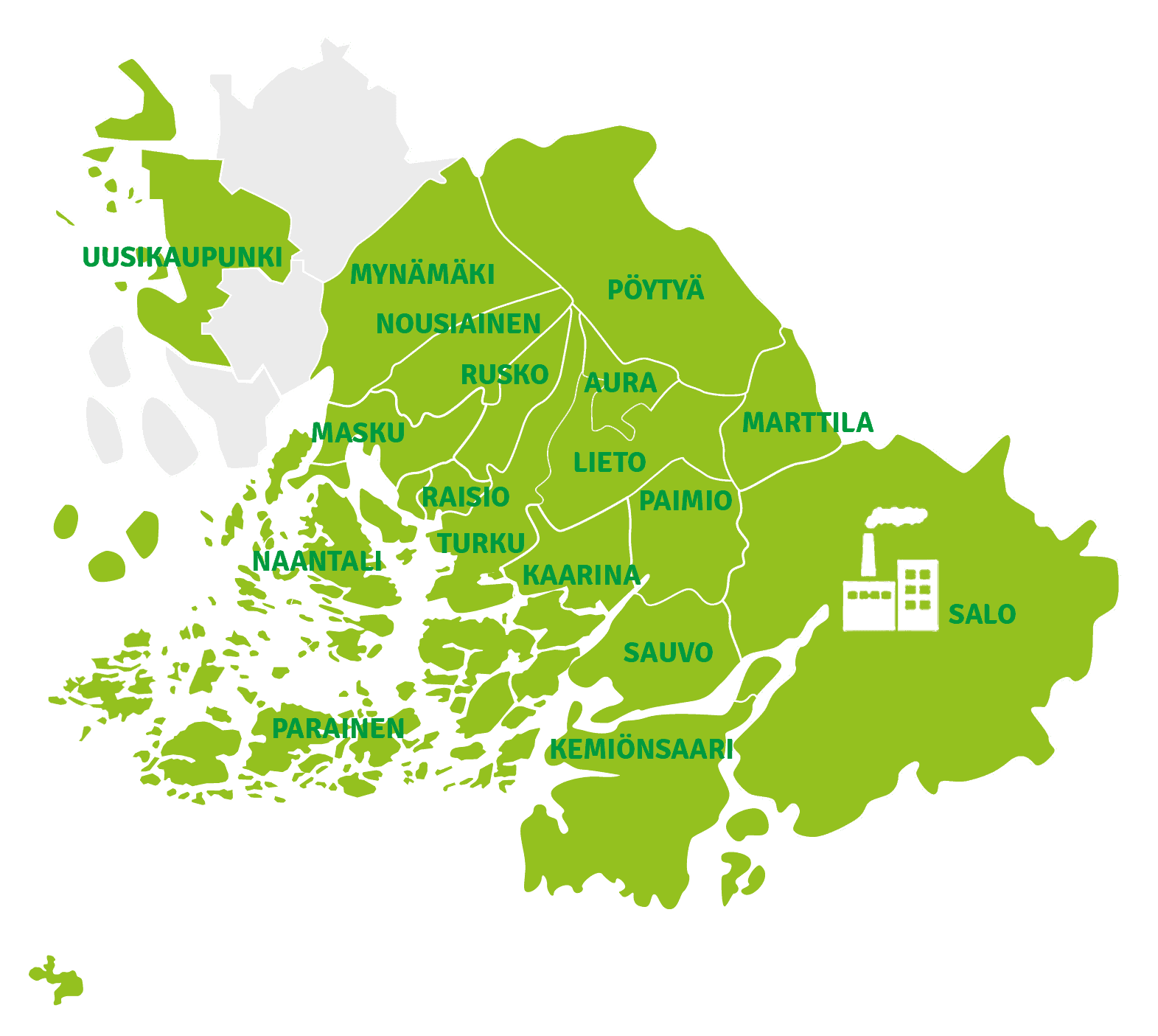INFORMATION ON LOUNAVOIMA
Lounavoima Oy is a local Waste-to-Energy (WtE) company, established in 2017. Lounavoima is owned by Lounais-Suomen Jätehuolto Oy (LSJH) and Salon Kaukolämpö Oy.
LSJH is owned by 18 municipalities with a combined population of 450,000. LSJH handles all waste management and waste information functions on behalf of these municipalities. Salon Kaukolämpö Oy is owned by the City of Salo, and provides district heating for approximately 15,200 residents.
Lounavoima’s waste-to-energy plant began operating in Salo in 2021. Lounavoima’s task is to use unrecyclable municipal waste collected by LSJH and convert it into energy safely, efficiently and ecologically. The company operates under the Mankala cost-price model, meaning that it provides services to its shareholders at cost.
Read more about our owners:
Lounais-Suomen Jätehuolto Oy
Salon Kaukolämpö Oy
Energy from unrecyclable waste
The waste-to-energy plant’s energy source is unrecyclable mixed waste from the LSJH catchment area and other waste in accordance with the environmental permit. The energy produced heats local households. The plant produces almost 90% of the district heating distributed by Salon Kaukolämpö Oy. Additionally, it supplies electricity to the national grid.
From a circular economy standpoint, there will be even more growth in the future: Lounapuisto circular economy park, to be built next to the Korvenmäki WtE plant focusing on environmental businesses, is one of the key projects of the City of Salo. The aim is to enable the development of a diverse new environmental business in the Korvenmäki area.
Lounavoima wants to be a forerunner in the circular economy and is involved in innovative projects. Read more about the geothermal heat storage and other projects on the Development projects page.

